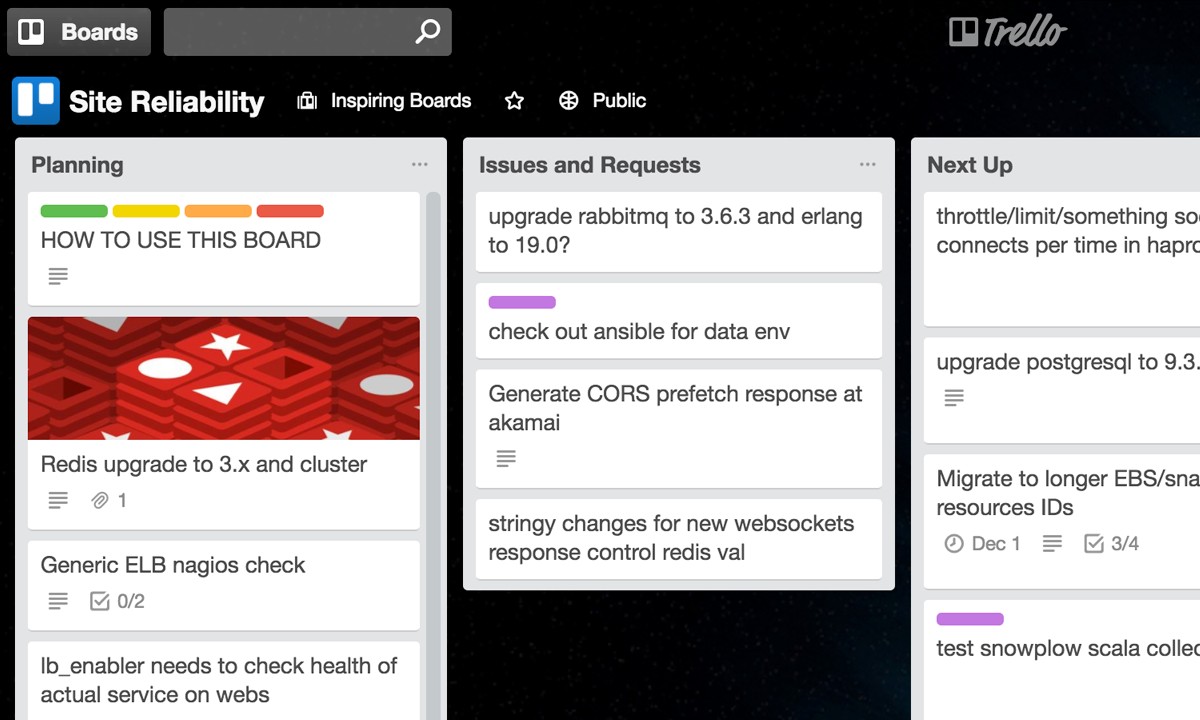


The Problem
Modern server platforms support an increasing number of network interface ports on the motherboard (Lan-on-Motherboard or LOM) in addition to numerous add-in (single and multiport) adapters. Traditionally, network interfaces are enumerated as eth[012…], but these names do not necessarily correspond to the actual labels as seen on the chassis. This new naming convention assigns names to network interfaces based on their physical location, whether embedded or in PCI slots. By converting to this naming convention, system administrators will no longer have to guess at the physical location of a network port, or modify each system to rename them into some consistent order.
In this classic naming scheme for network interfaces, the kernel simply assigns
the names beginning with eth0, eth1, … to all the interfaces as they are
probed by the device drivers during the system boot process. As the driver
probing is generally not predictable, in a multi network interfaces setup, a
given network interface that for example, got a name assignment eth0 in the
first boot may end up with a different name on the next boot. This is
undesirable and can have serious security implications, for example in firewall
rules which are coded for certain naming schemes and which are hence very
sensitive to unpredictable changing names. Also, this naming scheme gives no
clue whatsoever of the interface’s physical location on the system (for
example, whether it is on the system’s motherboard or if it is on an add-in
card or if it is on an add-in card with multiple ports and which port on the
card it is located). Hence you need a consistent device naming scheme that can
provide the following benefits:
- Stable network interface names across reboots
- Stable network interface names when you add or remove hardware
- Stable network interface names when you update/change the kernel or device drivers
- Stable network interface names when you replace a broken/defective ethernet card for example, with a new one
- The network interface names automatically get determined without user configuration and they just work
- The network interface names are predictable
Solution for physical servers
Predictable Network Interface Names
Starting with v197 systemd/udev will automatically assign predictable, stable network interface names for all local Ethernet, WLAN and WWAN interfaces. This is a departure from the traditional interface naming scheme (“eth0”, “eth1”, “wlan0”, …), but should fix real problems.
The Purpose
The classic naming scheme for network interfaces applied by the kernel is to simply assign names beginning with “eth0”, “eth1”, … to all interfaces as they are probed by the drivers. As the driver probing is generally not predictable for modern technology this means that as soon as multiple network interfaces are available the assignment of the names “eth0”, “eth1” and so on is generally not fixed anymore and it might very well happen that “eth0” on one boot ends up being “eth1” on the next. This can have serious security implications, for example in firewall rules which are coded for certain naming schemes, and which are hence very sensitive to unpredictable changing names.
To fix this problem multiple solutions have been proposed and implemented. For a longer time udev shipped support for assigning permanent “ethX” names to certain interfaces based on their MAC addresses. This turned out to have a multitude of problems, among them: this required a writable root directory which is generally not available; the statelessness of the system is lost as booting an OS image on a system will result in changed configuration of the image; on many systems MAC addresses are not actually fixed, such as on a lot of embedded hardware and particularly on all kinds of virtualization solutions. The biggest of all however is that the userspace components trying to assign the interface name raced against the kernel assigning new names from the same “ethX” namespace, a race condition with all kinds of weird effects, among them that assignment of names sometimes failed. As a result support for this has been removed from systemd/udev a while back
[…]
Predictable Network Interface Names break VM migration and cloning
Predictable Network Interface Names are the root problem for cloning and converting VMs, because every time we clone our VM, we don’t know what are the interface names on the new VM.
I don’t like this, how do I disable this?
You basically have three options:
- You disable the assignment of fixed names, so that the unpredictable kernel names are used again. For this, simply mask udev’s .link file for the default policy: ln -s /dev/null /etc/systemd/network/99-default.link
- You create your own manual naming scheme, for example by naming your interfaces “internet0”, “dmz0” or “lan0”. For that create your own .link files in /etc/systemd/network/, that choose an explicit name or a better naming scheme for one, some, or all of your interfaces. See systemd.link(5) for more information.
- You pass the net.ifnames=0 on the kernel command line
Example solution for Ubuntu 18.04
Solution A
sudo echo 'GRUB_CMDLINE_LINUX="biosdevname=0 net.ifnames=0"' >> /etc/default/grub
sudo grub-mkconfig -o /boot/grub/grub.cfg
sudo reboot
Solution B
sed -i.bak 's/GRUB_CMDLINE_LINUX_DEFAULT=.*/GRUB_CMDLINE_LINUX_DEFAULT="net.ifnames=0 bios.devname=0 quiet"/' /etc/default/grub
update-grub
apt-get remove biosdevname -y || true;
Solution C
Run this script, and if the output looks good, redirect the output into /etc/udev/rules.d/70-persistent-net.rules to build new udev rules in case the kernel ever decides to enumerate the ethernet ports in a different order.
#!/bin/bash
count=0
# build array of network devices starting with eth? from /proc
for dev in `cat /proc/net/dev | egrep 'eth.*:' | awk '{print $1};' | cut -d':' -f1 | sort`; do
edev[$count]="$dev"
let count="$count+1"
done
# use array to find mac address
for d in ${edev[@]}; do
mac=`ip addr show "$d" | grep ether | awk '{print $2};'`
if [ -n "$mac" ]; then
echo "# mac for $d is $mac"
fi
printf 'SUBSYSTEM=="net", ACTION=="add", DRIVERS=="?*", ATTR{address}=="%s", ATTR{dev_id}=="0x0", ATTR{type}=="1", KERNEL=="eth*", NAME="%s"\n' $mac $d
done





Comments: